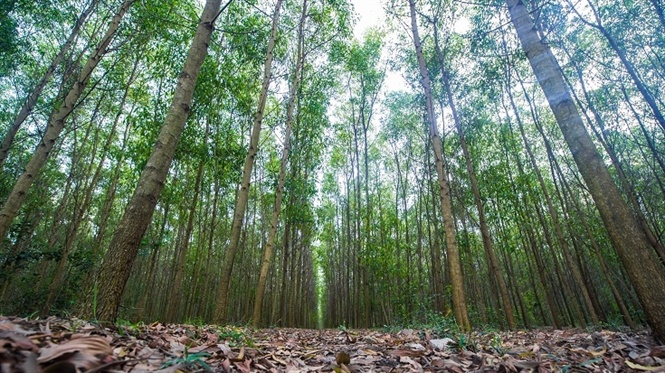November 26, 2025 | 14:18 GMT +7
November 26, 2025 | 14:18 GMT +7
Hotline: 0913.378.918
November 26, 2025 | 14:18 GMT +7
Hotline: 0913.378.918

These new projects will help conserve over 950,000 hectares of forested area across 12 provinces in Vietnam. Healthier, fuller forests, coupled with strong biodiversity, is critical to reducing greenhouse gas emissions.
The Sustainable Forest Management project, implemented by DAI Global, will reduce carbon emissions from deforestation, forest degradation, and poor timber plantation management practices in seven provinces.
The project is expected to strengthen Vietnamese law enforcement’s ability to combat forest crimes such as illegal logging; improve the livelihoods of 60,000 people in forest-dwelling communities; and strengthen the management of more than 250,000 hectares of forest.
The Biodiversity Conservation project, implemented by The World Wildlife Fund, will protect critical ecosystems to build resilience against the impacts of climate change; maintain and increase forest quality; and protect and stabilize wildlife populations. The project is expected to improve the ability of community patrol teams to detect and deter wildlife trafficking; improve economic opportunities for forest-dependent communities; and strengthen the management of 700,000 hectares of forest.
These activities build upon over a decade of USAID’s partnership with the Government of Vietnam, the private sector, and other partners to protect forests and biodiversity, counter wildlife trafficking, and curb environmental pollution to mitigate the effects of climate change.

(VAN) The model of making a living under the forest canopy through the agroforestry system in Van Son commune, Bac Ninh province, is expected to generate an annual income of approximately VND 30 million/ha.

(VAN) Many enterprises in Can Tho are harnessing natural energy and reducing greenhouse gas emissions in their production processes, thereby contributing to the promotion of a sustainable green transition.
/2025/11/24/3536-2-112800_176.jpg)
(VAN) Dong Nai now has tens of thousands of hectares of forests certified for sustainable management, and this area will continue to be expanded in the coming period.

(VAN) Vinh Ha hamlet (Dai Xuyen commune, Hanoi) is shifting away from small-scale farming as households adopt bioscurity into their breeder chicken models.

(VAN) Heavy rains make aquatic species more vulnerable to disease. Proactive water management and high-tech systems help farmers prevent outbreaks and protect yields.

(VAN) Greenhouses are shifting production mindsets in Binh Lu commune, enabling farmers to ‘weather the sun and rain’ and secure stable vegetable harvests throughout the year.

(VAN) Green transition is crucial for the Mekong Delta amid climate change and stricter standards, offering a path toward sustainability.